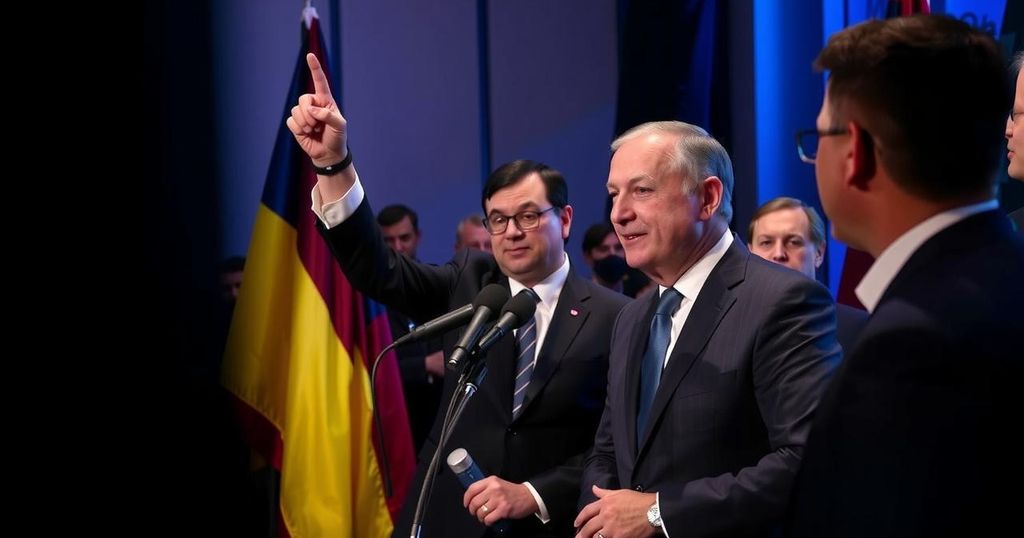World news
AFRICA, CAL, CALIN GEORGESCU, ELECTIONS, ELENA LASCONI, EUROPE, EUROPEAN UNION, GEORGESCU, GOVERNMENT, LASCONI, MARCEL CIOLACU, NAMIBIA, NATIONAL ASSEMBLY, PARLIAMENTARY SEATS, ROMANIA, SAVE ROMANIA UNION, SDP, SNAP ELECTIONS, SOCIAL DEMOCRATIC, SOCIAL DEMOCRATIC PARTY, STAR, UK, UKRAINE
Ethan Kumar
0 Comments
Romania’s Social Democrats Maintain Majority Amidst Far-Right Gains
Romania’s Social Democratic Party is expected to retain parliamentary majority despite the far-right Alliance for Uniting Romanians making significant gains. Voter turnout reached a historic high, signaling heightened political engagement. The election results suggest a growing challenge to Romania’s pro-European Union policies amid a resurgent far-right political climate.
Romania’s governing left-leaning Social Democratic Party (SDP) is poised to retain its majority in parliament following recent general elections, with preliminary results indicating the party garnered approximately 24 percent of the total votes. Meanwhile, the far-right opposition, represented by the Alliance for Uniting Romanians, significantly advanced with about 18 percent. This electoral outcome reflects a notable rise in the influence of ultra-nationalist parties within Romania, challenging the pro-European Union stance of the current coalition.
The National Liberal Party, a member of the governing coalition alongside the SDP, achieved around 14 percent of the votes, followed by the reformist Save Romania Union with 10 percent. The elections witnessed the highest voter turnout in two decades, with over 52.3 percent of eligible voters participating, indicating a robust engagement among the populace.
Final results remain pending as ballots from the substantial Romanian diaspora, who are expected to favor conservative parties, are yet to be counted. This electoral contest emerges amid heightened support for far-right and anti-establishment parties, posing serious implications for Romania’s commitment to European unity and its support for Ukraine amidst ongoing geopolitical tensions.
Notably, Calin Georgescu, the hard-right candidate, exceeded expectations in the presidential race’s first round, accumulating support through effective social media campaigning. His controversial past and statements regarding historical Romanian figures, as well as his alignment with Russian policies, have drawn scrutiny. As the electoral landscape shifts, concerns arise regarding the preservation of Romania’s democratic integrity in the face of these challenges.
The political climate in Romania has evolved significantly, with current elections marking a pivotal moment for the country. The Social Democratic Party has maintained a governing presence, but the resurgence of far-right factions indicates changing voter sentiments. Historical context, including Romania’s history as a Soviet satellite state and recent tensions with Russia, contributes to the contemporary political dynamic. The emergence of candidates like Calin Georgescu highlights the potential challenges facing traditional parties, raising questions about Romania’s future direction.
In conclusion, Romania’s recent elections showcased the resilience of the Social Democratic Party despite a significant challenge from far-right factions, notably the Alliance for Uniting Romanians. As voter mobilization reached unprecedented levels, the results signify a critical juncture in Romania’s political landscape. The rise of candidates like Calin Georgescu reflects broader societal trends and the need for vigilance in protecting democratic principles against growing nationalist sentiments.
Original Source: www.aljazeera.com




Post Comment